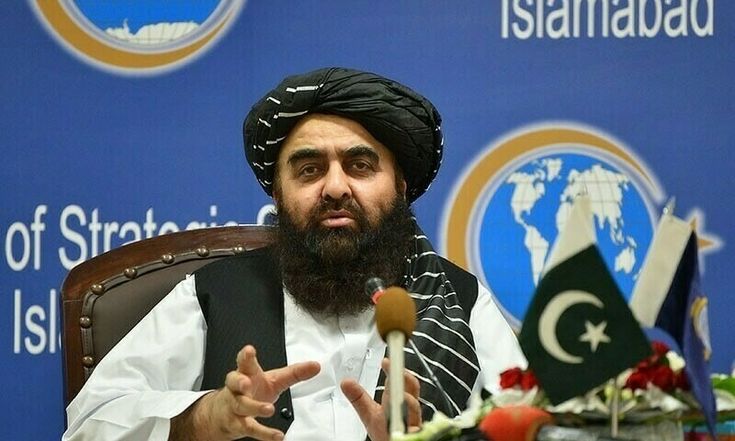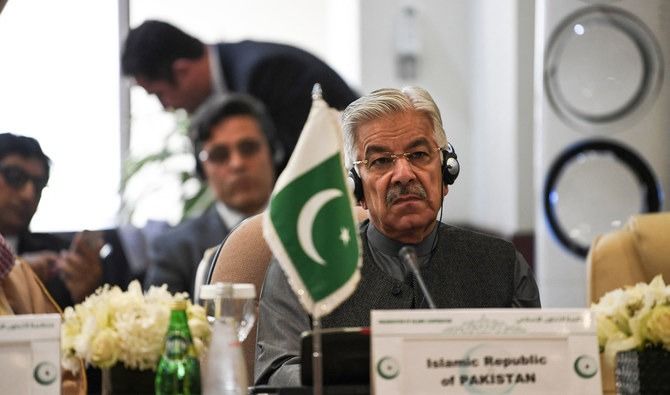Pakistan and Afghan Taliban Hold Critical Talks in Istanbul
The relationship between Pakistan and Afghanistan’s Taliban government has reached a critical juncture. After weeks of deadly border clashes and mounting frustration over terrorist attacks, both sides sent high-level delegations to Istanbul for what many are calling make-or-break negotiations. These talks could determine whether the two neighbours find a path toward cooperation or slide further into conflict.
High-Stakes Delegations Arrive in Turkey
Pakistan’s delegation, led by ISI Director General and National Security Advisor Lt Gen Asim Malik, arrived in Istanbul on Wednesday. The team represents the country’s top intelligence and security apparatus, signalling just how seriously Islamabad is taking these discussions.
The Afghan side brought equally senior representation. Intelligence chief Abdul Haq Wasiq heads the Taliban delegation, joined by Deputy Interior Minister Haji Najib, Foreign Ministry spokesperson Abdul Qahar Balkhi, and prominent Taliban figures Sohail Shaheen and Anas Haqqani. Their presence in Istanbul reflects the gravity of the situation from Kabul’s perspective as well.
Turkey and Qatar are facilitating these talks, building on their recent role in brokering a temporary ceasefire in Doha last month. Both countries understand that a complete breakdown in Pakistan-Afghanistan relations would destabilise the entire region, making their mediation efforts crucial.
Read More: https://pak.net.pk/
What Triggered This Crisis
The immediate catalyst for these urgent talks was a series of violent border clashes last month. Fighting along the Pakistan-Afghanistan frontier left casualties on both sides and prompted Pakistan to close key border crossings. The economic and humanitarian impact of these closures has been significant, disrupting trade and movement for ordinary people on both sides.
But the deeper issue goes beyond border skirmishes. Pakistan has grown increasingly frustrated with continued attacks by the banned Tehreek-e-Taliban Pakistan, known as TTP. According to Islamabad, these militants operate freely from Afghan territory, planning and launching attacks against Pakistani targets while enjoying haven across the border.
Pakistani officials claim that TTP leadership maintains bases, training camps, and logistical networks inside Afghanistan. They’ve repeatedly asked the Taliban government in Kabul to take decisive action against these groups. So far, those requests haven’t produced the results Pakistan wants to see.
Pakistan’s Hardening Position
Earlier this week, Lt General Ahmed Sharif, the Director General of Inter-Services Public Relations, delivered a clear warning to journalists. He stated that any cross-border attack originating from Afghanistan would be considered a violation of the ceasefire and would trigger a forceful response.
“If Afghanistan’s soil is used for terrorism against Pakistan, the truce will be null and void,” he said. The general added that Pakistan had shown considerable restraint despite repeated provocations, but that patience was wearing thin.
The military’s own estimates paint a stark picture of recent violence. According to Pakistani officials, at least 206 Afghan Taliban fighters and 110 TTP militants have been killed in border clashes. They also claim many militants involved in attacks inside Pakistan were actually Afghan nationals, not just Pakistani insurgents operating across the border.
This information has hardened Pakistan’s negotiating position. Islamabad is no longer interested in vague promises or symbolic gestures. They want concrete action and verifiable results.
The Core Issues on the Table
The Istanbul talks are focusing on three main areas that need urgent resolution.
Counter-Terrorism Cooperation
This is the most critical issue for Pakistan. The delegation is pushing for tangible steps against TTP infrastructure inside Afghanistan. This means dismantling training camps, disrupting logistical networks, and preventing TTP leadership from operating freely. Pakistan wants more than verbal commitments – they’re seeking a verifiable mechanism to ensure action is being taken.
Border Management
Both countries need to establish better systems for managing their long, porous border. This includes preventing militant infiltration, controlling the movement of fighters, and sharing intelligence about potential threats. Pakistan wants real-time cooperation on border security, not just periodic meetings that produce little practical change.
De-escalation Framework
The recent violence demonstrated how quickly tensions can spiral out of control. Both sides need mechanisms to prevent future escalations and handle incidents when they occur. This includes communication channels, joint investigation procedures, and agreed-upon responses to border violations.
Afghanistan’s Perspective
The Taliban government has its own grievances to raise in Istanbul. They’re expected to protest Pakistan’s airstrikes inside Afghan territory, which Kabul views as violations of sovereignty. These strikes have killed people and damaged property, creating resentment among Afghan officials and civilians alike.

Afghanistan is also pressing Pakistan on the treatment of Afghan refugees. Thousands of undocumented Afghans have been living in Pakistan, many for decades. Recent Pakistani efforts to repatriate these individuals have been controversial, with human rights groups raising concerns about deportations to a country still struggling with instability and economic crisis.
The Taliban maintains it doesn’t support cross-border attacks and has urged Pakistan to address what it calls “internal security lapses” rather than blaming Afghanistan for Pakistan’s terrorism problems. This position frustrates Pakistani officials, who see clear evidence of TTP operations from Afghan soil.
The Mediators Push for Progress
Turkey and Qatar aren’t just hosting these talks – they’re actively working to bridge the gap between the two sides. Both countries played important roles in the recent Doha ceasefire understanding, which provided temporary relief from escalating violence.
Ankara and Doha recognise that a complete rupture in Pakistan-Afghanistan relations would have serious consequences beyond these two countries. Instability in this region affects trade routes, refugee flows, and security dynamics across South and Central Asia. Both mediators are pushing for a long-term framework rather than another short-term patch.
Why This Meeting Matters So Much
Officials familiar with the process are describing the Istanbul meeting as potentially decisive. The stakes are genuinely high, and the consequences of failure would be serious.
If these talks don’t produce meaningful agreements on counter-terrorism measures, Pakistan may proceed with further militarisation of the border. This could mean more troops, more surveillance, more barriers – essentially hardening the frontier in ways that would make cooperation even more difficult in the future.
Border crossings could face extended closures, disrupting the lives of people on both sides who depend on cross-border trade and family connections. The economic impact would hit ordinary Afghans and Pakistanis hardest, as it always does when governments clash.
Trade between the two countries would suffer. Afghanistan depends heavily on Pakistani ports for imports and exports, while Pakistani businesses have markets in Afghanistan. A complete breakdown in relations would hurt both economies at a time when neither can afford it.
Pakistan’s Bottom Line
A senior Pakistani official, speaking to reporters, summed up Islamabad’s position bluntly: “Pakistan wants results, not rhetoric.” This statement captures the frustration that’s been building for months.
The official continued: “Pakistan’s position is simple – Afghan soil must not be used for attacks on Pakistan. If that commitment is not honoured, all options are on the table.”
That phrase – “all options are on the table” – carries weight. It suggests Pakistan is prepared to take more aggressive action if diplomacy fails. This could mean more cross-border strikes, increased support for anti-Taliban groups, or other measures that would further destabilise an already volatile situation.
The Path Forward
These Istanbul talks represent a crucial opportunity for both sides to step back from the brink. The temporary ceasefire brokered in Doha provided a moment to breathe, but it was always meant as a prelude to more substantive negotiations.
Both Pakistan and Afghanistan face serious challenges that cooperation could help address. Afghanistan needs stable relations with its neighbours for economic survival and international legitimacy. Pakistan needs security along its western border and an end to terrorist attacks that have claimed countless lives.
The question is whether both sides can move beyond grievances and accusations to find practical solutions. The Taliban government in Kabul is still learning how to govern and manage international relations. Pakistan is dealing with its own political and economic pressures that limit flexibility.
Success in Istanbul would require compromise from both sides. Pakistan would need to address Afghan concerns about airstrikes and refugee treatment. Afghanistan would need to take concrete steps against TTP that Pakistan can verify. Both would need to accept monitoring mechanisms and regular dialogue to maintain whatever agreements they reach.
What Comes Next
The outcome of these talks will become clear in the coming days. If negotiators can hammer out verifiable agreements on counter-terrorism and border management, it could open the door to improved relations. Both countries could benefit from increased trade, better security coordination, and reduced tensions.
But if the talks fail to produce concrete results, the region faces a troubling period ahead. More violence, more economic disruption, and more suffering for ordinary people on both sides of the border. The refugee crisis could worsen, with implications for Pakistan and other neighbouring countries.
The international community is watching these talks closely. Regional stability depends partly on Pakistan and Afghanistan finding ways to coexist peacefully. Other countries have interests at stake too – from China’s Belt and Road projects to American concerns about terrorism and regional security.
For now, all eyes are on Istanbul. The delegations are meeting in a city that has historically bridged East and West, hoping to bridge the divide between two neighbours who share history, culture, and challenges. Whether they succeed or fail will shape South Asian security dynamics for years to come.
The phrase “make or break” gets used often in diplomacy, sometimes with exaggeration. But in this case, it feels appropriate. These talks really could determine whether Pakistan and Afghanistan find a path toward peaceful coexistence or descend further into conflict. The stakes are that high, and the margin for error is that small.

